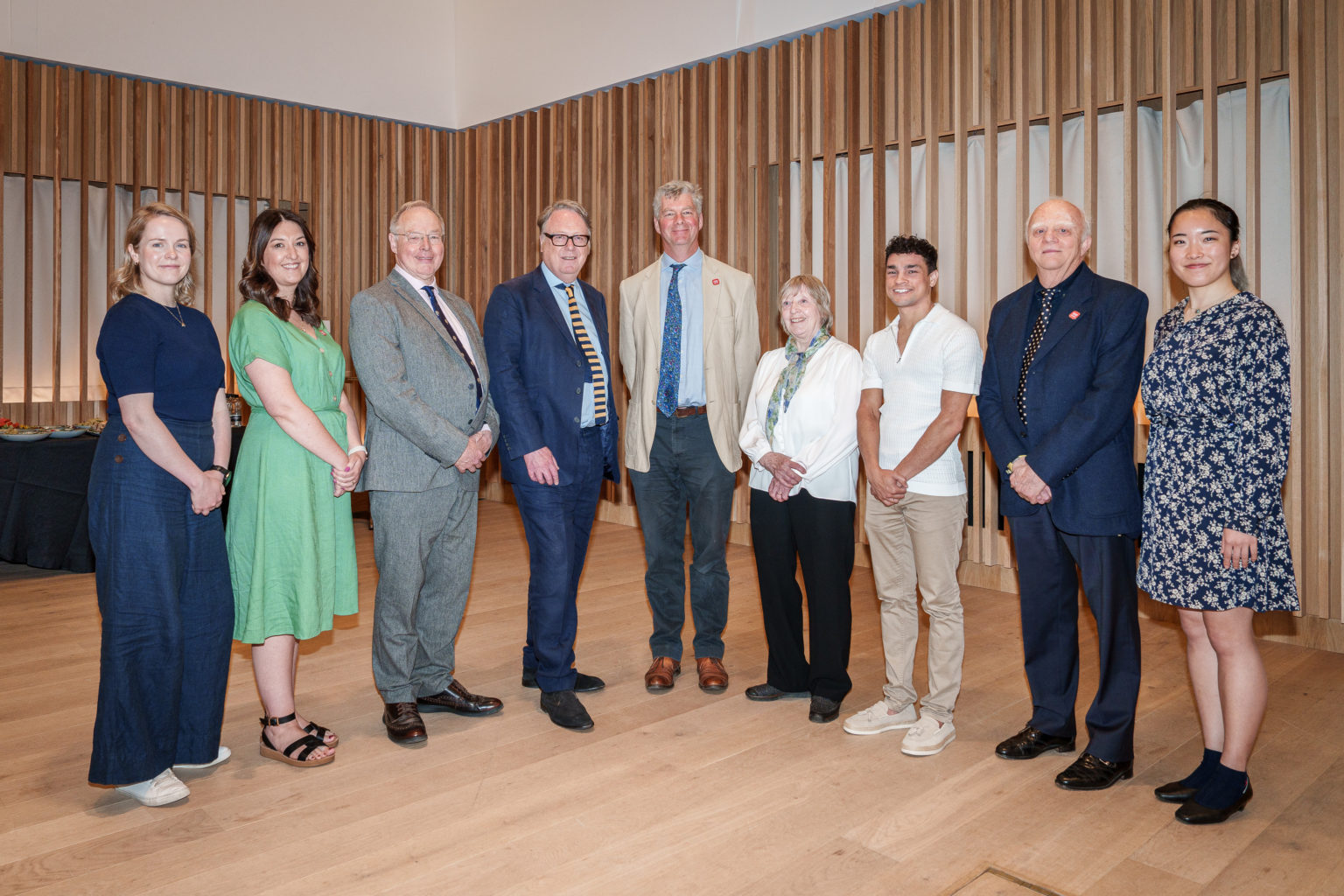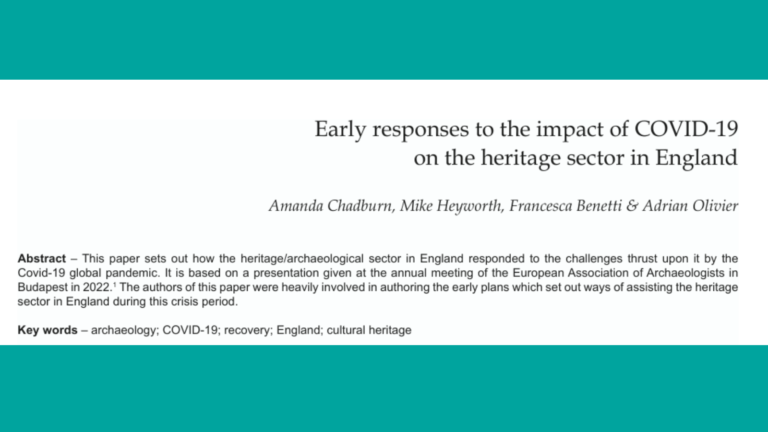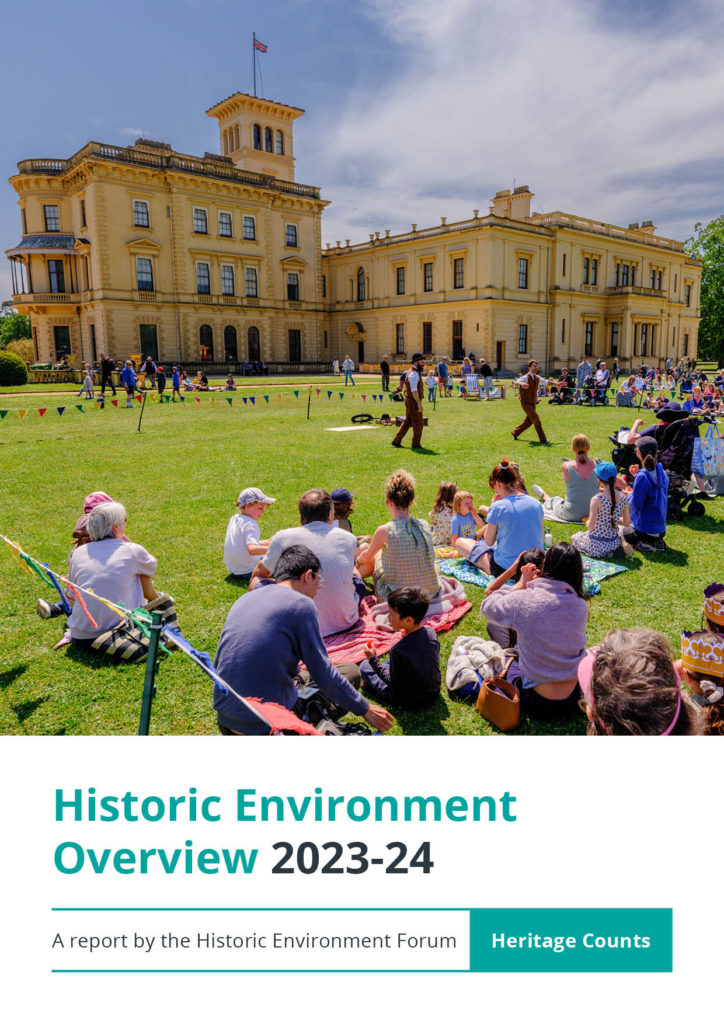Policy Resilience: an Interview with Sarah Roller, Policy & Engagement Manager at Historic Houses
In the latest instalment of the Historic Environment Forum’s Sector Resilience Interviews series focussed on the theme of Policy, we hear from Sarah Roller, Policy & Engagement Manager at Historic Houses.
Please tell us a bit about yourself and your role.
 I manage Historic Houses’ policy, public affairs and engagement work: in short, I spend a lot of time advocating for our 1,450 or so members, both to government and to the rest of the sector! Historic Houses is a membership association, representing independent historic houses and gardens across the UK: these could be anything from world heritage sites like Blenheim Palace to tiny individual historic houses, like the Cowper & Newton Museum.
I manage Historic Houses’ policy, public affairs and engagement work: in short, I spend a lot of time advocating for our 1,450 or so members, both to government and to the rest of the sector! Historic Houses is a membership association, representing independent historic houses and gardens across the UK: these could be anything from world heritage sites like Blenheim Palace to tiny individual historic houses, like the Cowper & Newton Museum.
The majority of heritage in the UK is owned privately, but we’re often the only organisation in the room representing those sites – so we’ve got a big responsibility in making sure their voices are heard!
What can you tell us about your work in relation to Policy? What does this work aim to achieve?
Policy and advocacy work is at the heart of Historic Houses. We were founded as a lobbying organisation just over 50 years ago, and it’s still core to our work today. We aim to create a better fiscal and regulatory framework for independent historic houses – which, for our members, means a more supportive fiscal framework (we’ve campaigned on reforming Heritage Maintenance Funds, on targeted VAT rebate schemes for repairs and maintenance to listed buildings, and the like), as well as a smarter regulatory framework. The majority of our members are rural SMEs, and they want it to be easier to install clean energy, to adapt buildings for residential or commercial use to support the main heritage asset, and to not be weighed down by red tape and paperwork.
The biggest existential issue our members are facing at the moment is around insurance. Premiums have skyrocketed in recent years, and some Historic Houses places are struggling to meet these costs. Insurance of highly listed buildings is obviously extremely important, so we’re actively flagging this issue to government and Historic England to highlight the problems and to lobby on potential mitigation measures.
So, we cover a lot of policy areas: there’s never a dull day!
What contribution will this make towards resilience in the heritage sector?
For our members, resilience is about being able to adapt to the times. Historic houses have, by their nature, been around for a long time. They’ve managed to survive precisely because they’ve changed and adapted over the years. So, really, we want to help ensure our members can do the same: after all, it’s vital for historic buildings to have a use, and to be loved, if they’re to have any degree of longevity moving forwards.
Similarly, our fiscal lobbying campaigns are about supporting houses in being financially viable in the long term. There are already some provisions in the fiscal framework to support heritage, but it’s vital that these work properly to support the repair and maintenance of the UK’s historic buildings.
What does success look like for your work?
Success will look like changes to the NPPF, to further link heritage and climate change – and/or it will see government introducing some of the measures we’ve been lobbying for, including things like Listed Building Consent Orders (LBCOs) on some energy efficiency measures. It’s a long game, and there are very rarely ‘quick wins’ – but changes to major pieces of policy framework can make a huge difference.
How can we get involved, or where can we find out more?
We regularly tweet about our work (@Historic_Houses), and you can also find out plenty on our website (historichouses.org) – including our latest research and evidence. Becoming a Historic Houses member helps support our lobbying and advocacy work financially, and we always love having moral support from our heritage sector colleagues, and being brought into discussions to represent independent owners of heritage.
Overall, what do you think is most crucial for ensuring a resilient heritage sector?
We need to be honest about the challenges facing our sector, and really commit to meaningful action to combat them. As a sector, we’ve spent a long time talking about and identifying challenges – and now we need to actually make the change happen.
Climate change is the biggest existential threat facing the sector. Historic Houses places have (mostly) been standing for centuries, and they’re used to taking the long view. It’s vital we allow these places to adapt to become more energy efficient, more climate change resilient, and to generate their own clean energy where possible, so that they have the best possible chance of staying usable and relevant in the years to come.
Secondly (and very closely behind!), of course, comes financial resilience. The pandemic saw 47% of Historic Houses places delay or cancel repairs and maintenance projects, and many saw their reserves significantly drained during the successive lockdowns. Ensuring the viability of heritage businesses moving forwards will be crucial to the sector’s resilience. After all, buildings without use or purpose are the ones at greatest risk.
This Sector Resilience interview was shared by Sarah as part of our Heritage Sector Resilience Plan activities.
If you’d like to contribute an interview as part of the series, follow the link below to find out more:




